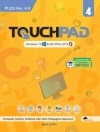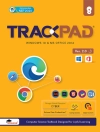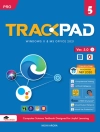Getting started with the processes and the tools to continuously deliver high-quality software
About This Book- Incorporate popular development practices to prevent messy code
- Automate your build, integration, release, and deployment processes with Jenkins, Git, and Gulp?and learn how continuous integration (CI) can save you time and money
- Gain an end-to-end overview of Continuous Integration using different languages (Java Script and C#) and tools (Gulp and Jenkins)
Who This Book Is For
This book is for developers who want to understand and implement Continuous Integration and Delivery in their daily work. A basic knowledge of at least Java Script and HTML/CSS is required. Knowing C# and SQL will come in handy. Most programmers who have programmed in a (compiled) C-like language will be able to follow along.
What You Will Learn- Get to know all the aspects of Continuous Integration, Deployment, and Delivery
- Find out how Git can be used in a CI environment
- Set up browser tests using Karma and Selenium and unit tests using Jasmine
- Use Node.js, npm, and Gulp to automate tasks such as linting, testing, and minification
- Explore different Jenkins jobs to integrate with Node.js and C# projects
- Perform Continuous Delivery and Deployment using Jenkins
- Test and deliver a web API
In Detail
The challenge faced by many teams while implementing Continuous Deployment is that it requires the use of many tools and processes that all work together. Learning and implementing all these tools (correctly) takes a lot of time and effort, leading people to wonder whether it’s really worth it. This book sets up a project to show you the different steps, processes, and tools in Continuous Deployment and the actual problems they solve.
We start by introducing Continuous Integration (CI), deployment, and delivery as well as providing an overview of the tools used in CI. You’ll then create a web app and see how Git can be used in a CI environment. Moving on, you’ll explore unit testing using Jasmine and browser testing using Karma and Selenium for your app. You’ll also find out how to automate tasks using Gulp and Jenkins. Next, you’ll get acquainted with database integration for different platforms, such as Mongo DB and Postgre SQL. Finally, you’ll set up different Jenkins jobs to integrate with Node.js and C# projects, and Jenkins pipelines to make branching easier.
By the end of the book, you’ll have implemented Continuous Delivery and deployment from scratch.
Style and approachThis practical book takes a step-by-step approach to explaining all the concepts of Continuous Integration and delivery, and how it can help you deliver a high-quality product.












